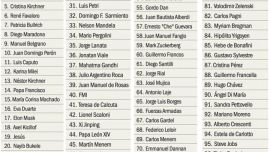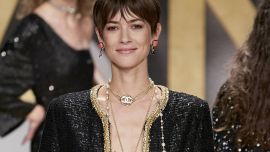Argentina’s recent census data shows that the average number of children per woman has fallen from 1.7 in 2001 to 1.4 in 2022. The findings highlight that women with a higher educational level tend to have less children. Although the data comes from Argentina, the trend seems extended throughout the Western world with the ‘childfree movement’ in the United Kingdom or ‘NOMO (No Mother)’/’No Mo(ther)’ in the United States.
Argentina’s CIPPEC (Centro de Implementación de Políticas Públicas para la Equidad y el Crecimiento) think-tank affirms that while in 2001 32 percent of the births were to women aged 30 or more, in 2016 that percentage rose to 38 percent and counting. Maternity is evidently being postponed. In various opinion polls, the responses most repeated by the women deciding not to become mothers or delaying that decision are the lack of economic stability, climate change, a longer life expectancy or simply a lack of interest. CIPPEC also affirms that the job and pay gap between males and females widens among those who have children.
“Since 2003 males with children are the most employed group (around 95 percent), followed by males without children (85-90 percent). Far behind are the women without children (65-70 percent) while mothers have the least participation in the job market (around 60 percent),” states CIPPEC on its website.
Testimonials: a decision taken
“I never denied becoming a mother. I never said: ‘I roundly oppose having children.’ But I was always very free, placing my work at the centre of my life. I like to travel a lot and decide anything without having to consult anybody, If they tell me I have a job opportunity in Australia in two days, I’m off,” says Noelia Fraguela, 40, who has been living and working for the last four years in Galicia, Spain, where she went to study for a master’s degree.
“I always escaped everything which could tie me down: long hours, a marriage, a child. I never felt pressured nor out of place. My family has never raised the issue nor suggested anything to me, quite the contrary.
“From the age of four my mum knew that she wanted to be two things: a doctor and a mother. In my case, on the contrary, no maternal instinct has ever arisen in 40 years and I believe that if you don’t feel any strong desire to be a mother, you shouldn’t be one. I know women who were mothers and afterwards did not take proper care of their children. That's egotism. A child changes everything and you have to understand that before making a decision,” affirms Fraguela, a journalist born in the city of Ensenada.
Noelia, who has had a partner for the last 11 years, shares his way of thinking: “If he had wanted to be a father, we would no longer be together. Have I ever repented? Perhaps. But that would be a problem for a future Noelia. I wouldn’t have a child just out of fear that my time is almost up. I wouldn’t freeze eggs or anything of that sort. You have to do what you believe to be correct and what makes you feel good,” she concludes.
“When I was a little girl, I played at being a mother like the others but as I got bigger, it was a role which I left aside and began to question. When they began to ask me what I wanted to be when I grew up, I spoke of travel and a profession but never about marriage or children,” recounts Micaela Aguirre, 27, from Mendoza.
“I began to think of ‘forming a family’ and my answers to myself were only ‘buts.’ Every time I think about my future, I do not see it as maternal. I know that it is a role which would bring a lot of love, respect and conscientiousness but I do not desire it,” she sustains.
As she nears 30, Micaela’s family is starting to ask her questions.
“They comment that I am still young and that I should take advantage of that while my mum keeps asking me for grandchildren. I am now firm in my answer that I do not want to be a mother and they judge me for that. Some women tell me that I should think about what would happen if I fell in love with a person who rejected me for not wanting to be a mother. And I ask myself: Why should I place the desires of other people ahead of my own?” questions Aguirre.
“The female models in my family, like my mum, my grandmother and my aunts had children after turning 30 or 35 and they always stressed that before giving birth, you had to have a career and ‘assemble’ your life. That's why the decision and desire not to be a mother came organically and was not a contradiction or conflict in my life,” says Sofía Alzaibar, 25, a radio journalism student.
“I think that my decision has something to do with my generation, with an adolescence ‘stretching out.’ Thinking of having a child makes for being two babes in a pretty hostile world, despite my being on the brink of adulthood,” jokes Alzaibar, a resident of the Federal Capital.
“Ahead of being a mother I’d like to be independent, professional and self-sufficient and at least in my circle, I perceive other women thinking alike. There is a broader awareness of the true work implied in being a mother and how that work falls mostly on women, which does not make it a very desirable fate. Economic factors are very important. The time spent outside economic activity looking after a child is not financially solvent,” is Sofía’s opinion.
In keeping with her impressions, according to surveys by a number of feminist organisations and NGOs, women work around seven more hours a week than men if houseminding is added to formal employment.
“I don’t talk a lot about it because it’s a very intimate decision. You listen to all that, from girls who are in agreement to women who are mothers and yet understand and share my stance and even people who look at you with a face of ‘one day you’ll want to,’” Alzaibar points out.
“Making being a mother equivalent to being a woman seems to me reductionist and old-fashioned. I find it tiring having to explain yet again that our biological condition does not imply that we have to be mothers or that we have a ‘maternal instinct.’ And when we dare not to follow that mandate, which is not our biological destiny, we are stigmatised as incomplete.
“We are people with our own desires and projects which may or may include that biological possibility of creating life,” said the young student.
In community
Nunca Madres is a community that accompanies women in the process of deciding whether or not they want to have children, as well as women who have completely decided against maternity.
It seems necessary to recall that true feminism means being able to choose.
“This is not antagonism against mothers and their offspring – on the contrary, we must see how we re-encounter and how we leave a better planet for those yet to come. We proceed from the premise that biology does not condemn those born with a uterus to wanting to use it. You can be a complete and happy woman after having decided against maternity,” says Irán Sosa, the co-founder of the project which is followed by women of all Spanish-speaking nationalities.
What are the prejudices with the most hearing?
“Normally, most times not choosing maternity is questioned, it comes from abroad but there are sometimes also internal pressures. In more traditional, conservative and religious societies, like some in Latin America, the stigma of the belief that you are an incomplete woman makes itself felt,” said Sosa.
“Your function as a woman is to be a mother and when you decide not, then something is wrong,” respond the creators of the community, which defines itself as “women who choose not to be mothers.”
They continue: “Bit by bit those beliefs begin to spread fear. Who is going to look after you when you grow up? Will you be on your own? And what if you repent not being a mother? The central idea is that you will never be able to be really happy nor experience the maximum love in life.”
And how do you face up to that tick-tock of the biological clock?
“For the women who are in the process of deciding, their biological clock is one of the main factors of pressure. The first thing we must understand to dismantle this pressure is that there are different ways of being a mother. If you want to be a biological mother, you can freeze your eggs and postpone the decision. But if you are open to other forms, then you can continue exploring this decision without feeling pressure and without having to pay for the process of freezing the eggs,” they respond.
The polycrises suffered in diverse countries gather force when deciding to create a life.
“There are two recurrent issues which make women stop to reflect on whether or not they want to be mothers: the economic and environmental situations,” note the creators of Nunca Madres.
“I consider that the social construction given to the maternal instinct has helped not only to romanticise and idealise maternity but has ended up with many women stuck with the task of bringing up the children almost in their totality because who takes better care than mummy?
“To give one example, the work of bringing up children represents 26 percent of the Gross Domestic Product of Mexico. Not only is it thankless work but nor is it remunerated as ‘being done for love,’” says Irán.
“Many women have a triple or quadruple working day: their professional career, being a mother, being a housekeeper and often the afternoon tutor of their children,” state Nunca Madres on their website.





















Comments